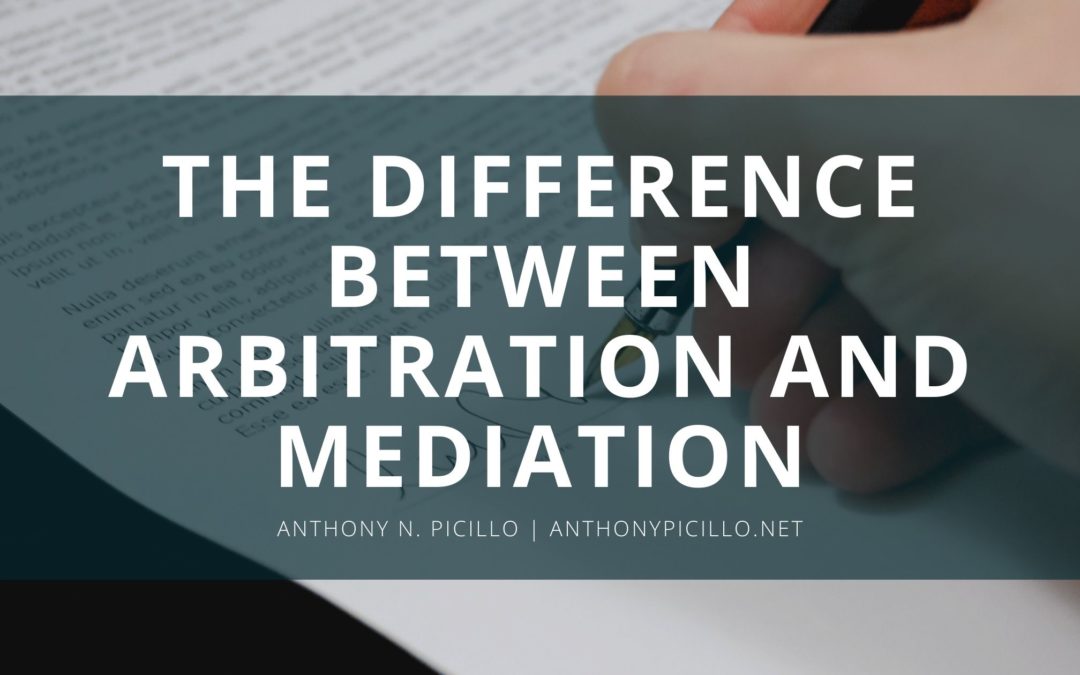Terms such as arbitration and mediation are frequently thrown around on social media and in pop culture. Yet, many people can not distinguish between the two different processes. It is beneficial to understand these differences – ideally before one finds a need for either in their life.
Both arbitration and mediation have certain similarities, which does cause some confusion. Both are alternatives to traditional litigation; that is to say: both are designed as alternatives to court cases.
In both arbitration and mediation, there should be a neutral third party involved. This person is meant to help both parties find a compromise that they can agree upon. It’s clear why a neutral party must play this role.
Arbitration
Arbitration is when a dispute is settled through the use of one or more arbitrators. The arbitrator is tasked with making a binding decision on the dispute, one that both parties must agree with.
It’s important to understand that arbitration is only possible when both parties agree to follow this path to avoid court proceedings. It can not happen alongside a case or any other combination.
Arbitration requires the willingness of both parties – and their consent. It cannot force either party to agree to arbitration and can only dictate a decision once they have come to the table.
However, once an arbitrator’s decision is made, it is legally binding and, in most circumstances, non-appealable. As with mediation, the arbitrator must be a neutral third party.
Mediation
Conversely, mediation is the process by which both parties agree on a solution with the help of a mediator. In this case, the mediator doesn’t have the power to decide independently but must guide the two parties to one that satisfies all involved.
In other words: mediation puts the decision-making process entirely on the parties involved. The mediator is only there to facilitate the process, and once again, they are intended to be a neutral third party.
In mediation, it is the mediator’s job to explain the process, define the problem, and encourage open discussion between the parties. However, this open discussion frequently happens through the mediator, explaining why they must be a trusted third party. Said mediator can make suggestions and develop solutions to the problem but can not force or enforce these guidelines.

